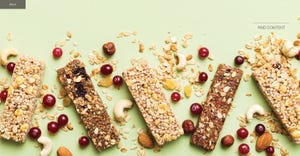A crackdown in the United Kingdom against certain advertising claims highlights distinctions in the U.S. and U.K. over the types of permitted statements for certain alcoholic drinks.
.png?width=850&auto=webp&quality=95&format=jpg&disable=upscale)
Regulators in the United Kingdom are cracking down on marketers of hard seltzers for advertising claims related to nutrition and health.
“Ads for hard seltzer drinks have often associated with a modern, conscious consumer who cares about what they put into their bodies,” according to a July 7 news release from the U.K.’s Advertising Standards Authority (ASA). “So marketers should be especially cautious not to make unauthorized health or nutrition claims about hard seltzers, or to mislead about the amount of alcohol they contain.”
ASA warned advertisers not to imply anything with more than 1.2% ABV (alcohol by volume) is ‘low alcohol’ since hard seltzers typically contain between 4-6% ABV.
The U.K. authority further noted its advertising codes do not allow marketers to make any health, fitness or weight-control claims for alcoholic drinks.
“Even claims made in a light-hearted way are likely to breach the code,” ASA cautioned, linking to an investigation involving BrewDog plc, a Scottish beer maker.
ASA investigated certain advertising claims made by BrewDog and that appeared in January 2021, including a paid-for post on Instagram for an alcoholic hard seltzer drink. The post featured an image of a can of Clean & Press Hard Seltzer and the following text: “DUE TO ADVERTISING REGULATIONS WE CANNOT CLAIM THIS DRINK IS HEALTHY.”
The social media post stated below the image: “Even though Clean & Press is only 90 calories per can, with no carbs or sugar and a little bit of alcohol, this is not a health drink. If you are looking for a health drink, do not drink Clean & Press.”
Among other challenges, ASA argued advertisers of alcoholic drinks were prohibited from making nutrition claims of “only 90 calories per can” and “no carbs or sugar.” ASA’s news release said only three nutrition claims are authorized for alcoholic drinks.
According to ASA, BrewDog stated its advertising claims “were intended to be tongue in cheek,” but the beer company accepted it breached the advertising code and agreed not to use the ads in future campaigns.
Yet BrewDog republished a prohibited ad on social media the day ASA announced the ban, BBC News reported. "The ASA have banned our Instagram advert for saying that we cannot call our seltzer a health drink because we cannot call our seltzer a health drink,” the article quoted the social media post. “Pretty meta. We are also not allowed to tell people it only has 90 calories. Even though it has."
BrewDog did not immediately respond to a request for comment for this article.
U.S. labeling claims
ASA’s crackdown highlights distinctions in the U.S. and U.K. over the types of permitted claims for certain alcoholic drinks.
For instance, companies in the U.S. can make nutrient content claims for hard seltzers subject to FDA’s jurisdiction if they meet applicable regulations, said Justin Prochnow, a food and beverage attorney in Denver. A claim that a hard seltzer contains “only 90 calories” would be prohibited in the U.S. “because that implies low calories and 90 calories would not be low, but you would be allowed to say ‘no carbs or sugar’ if that’s true,” Prochnow said in an interview.
A manufacturer of a hard seltzer whose labeling was subject to FDA’s jurisdiction also could make a “healthy” claim, Prochnow added, provided the company met the applicable regulation in 21 CFR 101.65(d).
In the U.S., beverages such as wine and cider with less than 7% alcohol content by volume are subject to the labeling requirements of the Federal Food, Drug, and Cosmetic Act and Fair Packaging and Labeling Act. While non-malt-based beers like hard seltzers must submit formulas to the Alcohol and Tobacco Tax and Trade Bureau (TTB), labeling for such products must comply with FDA requirements, Prochnow observed.
Scrutiny on Molson Coors
U.S. manufacturers of hard seltzers could possibly run into problems with FDA or the agency responsible for policing deceptive advertising practices—the Federal Trade Commission. In 2011, the marketers of Four Loko agreed to re-label and repackage a high-alcohol malt beverage to resolve FTC charges of deceptive advertising, including claims that a person could safely consume an entire can on a single occasion.
Prochnow in recent years has reviewed several hard seltzer products for compliance with FDA labeling regulations. While he’s unaware of a major FDA crackdown against such products, hard seltzers have received the attention of outside groups in recent months.
In March, two consumer groups asked FDA to formally prohibit nutrient content claims on alcoholic drinks in a letter that alleged Molson Coors Beverage Company was misleading consumers with an advertising campaign for its Vizzy Hard Seltzer. Launched in the U.S. in April 2020, the alcoholic drink is fortified with antioxidant vitamin C from acerola superfruit.
Molson Coors’ vitamin C claims violate an FDA fortification policy that says it’s inappropriate to add vitamins and minerals to alcoholic drinks, according to the Center for Science in the Public Interest and Consumer Federation of America. The consumer groups also alleged the claims are misleading by suggesting “Vizzy is a healthful source of nutrients, obscuring the fact that alcoholic beverages provide empty calories, are associated with serious health conditions and can impair the body’s metabolism of nutrients.”
An FDA spokesperson said in March the agency was reviewing the letter from the consumer groups and would respond directly to them.
The letter may have spawned a proposed class action lawsuit filed in May against Molson Coors over its Vizzy brand. The lawsuit, which quoted CSPI’s letter to FDA, alleged Vizzy commands “a premium price” of at least $15.99 for a pack of twelve 12-ounce cans due to “false and misleading representations.”
“The product attributes for Vizzy are in full compliance with all FDA regulations and guidelines, and the lawsuit in question completely lacks merit,” Molson Coors spokesman Marty Maloney responded in an email. “While antioxidant Vitamin C is part of what makes Vizzy stand out, we have always been committed to communicating this product trait responsibly.”
About the Author(s)
You May Also Like






